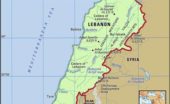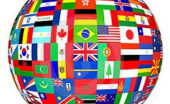Molly Minturn - My family is heartbroken to share that my father died in surgery on Monday, Feb. 10. It…
IMF International Monetary Fund
Written by Diana Thebaud Nicholson // October 12, 2008 // Global economy, Government & Governance // Comments Off on IMF International Monetary Fund
See IMF and World Economic Outlook Reports ; The world after the (bailout) vote
Nations seek IMF crisis funding
The credit squeeze is spreading to emerging market economies, forcing them to turn to the IMF for emergency balance of payments financing, managing director Dominique Strauss-Kahn confirmed yesterday.
His comments came amid mounting fears that Pakistan, Ukraine, Kazakhstan and Argentina could all now lurch into a downward spiral towards bankruptcy.
Strauss-Kahn spoke about the approaches after the Fund’s International Monetary and Finance Committee (IMFC) warned of possible “spillover effects” on emerging economies from the financial crisis.
Private credit lines and commercial bank lending to certain emerging markets have been cut or restricted, resulting in funding problems for these countries, said Strauss-Kahn. “It is obvious that with the risk of repatriation of [private] capital”, more emerging markets are likely to turn to the IMF for emergency support, he said.
IMF warns that markets could collapse by another 20%
11 October
Being and nothingness – A Frenchman’s dilemma
(Emerging Markets) On the eve of his appointment as managing director last November, Dominique Strauss Kahn pledged to revitalize the IMF’s role as global financial watchdog … the former French finance minister said he strongly endorsed various proposals by the International Monetary and Financial Committee, the IMF’s governing body, to boost the Fund’s surveillance role, grant greater voice to developing countries and overhaul the institution’s funding model.
“When I listened to what they are saying at the IMFC, it’s clear that they are really asking for reform,” he acknowledged at the time, stressing that he was well placed to reinvigorate the institution, as “the candidate of reform”.
A year later, as the US financial crisis has unfolded dramatically and in ways few had anticipated, the IMF has been noticeable mainly for its absence. The question now is whether the institution’s governors and management can restore its relevance.
Cut down to size
As that debate gathers pace, the IMF, meanwhile, is in process of being downsized. But size is not really what counts in the eyes of those who argue that even in its restructured form the Fund will be unable to remain viable or relevant unless it adapts to the realities of a changing world.
It is no longer just a question of reforming IMF governance – issues such as ‘voice’ and representation – but of whether the Fund should continue to operate as presently constituted or, instead, give way to a new entity combining the powers of the G7 or other official groups with those of private financial institutions and official regulatory bodies. IMF lending has fallen dramatically in recent years and there is no longer room for an official lender of last resort, some say.
At the beginning of September Strauss Kahn appointed a committee of eminent persons “to assess the adequacy of the Fund’s current framework for decision-making and to advise on any modifications that might enable the institution to fulfil its global mandate more effectively.” The committee, however, will be looking at possible governance reforms at the IMF rather than reviewing its basic mission.


